Ginisang Togue was my go-to dish every Friday during Lent when we observed our no-meat days. I've perfected this recipe over countless meals, learning my Lola's secret of keeping the bean sprouts perfectly crisp while letting the shrimp flavor infuse every bite.
It's amazing how this humble vegetable dish - made with fresh togue, plump shrimp, and a splash of patis - has become my family's most requested ulam, especially on busy weeknights when I need something quick but satisfying.
I love how this Ginisang Togue recipe transforms affordable ingredients into something truly special in just 20 minutes. The key is keeping those bean sprouts crispy (I'll share my tried-and-tested tips below) and being generous with the garlic and patis.
Jump to:
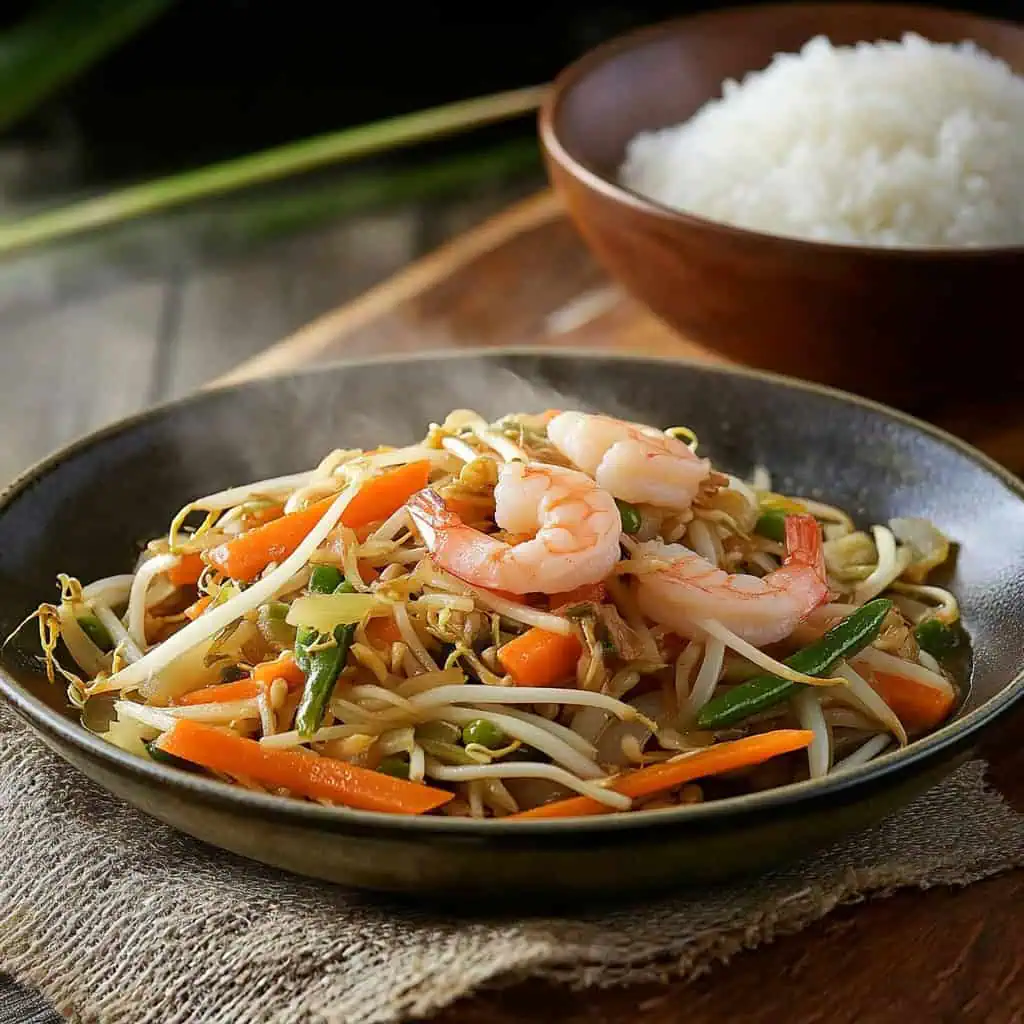
Why You'll Love This Recipe
- Ready in just 20 minutes - perfect for busy weeknight dinners
- Budget-friendly yet nutritious
- Crispy, fresh, and light - never soggy
- Versatile - easily customizable with different proteins and vegetables
- Naturally low in calories but filling
- Authentic Filipino flavors with a modern touch
Ingredients
Each ingredient in this recipe serves a special purpose. Bean sprouts provide the crisp foundation with their light, refreshing crunch. Shrimp adds protein and a subtle sweetness that balances perfectly with the savory fish sauce.
Carrots and green beans bring color, nutrients, and textural contrast, while garlic and onions create the aromatic base that's essential in Filipino cooking.
This simple combination transforms ordinary ingredients into an extraordinary dish that's both economical and satisfying.
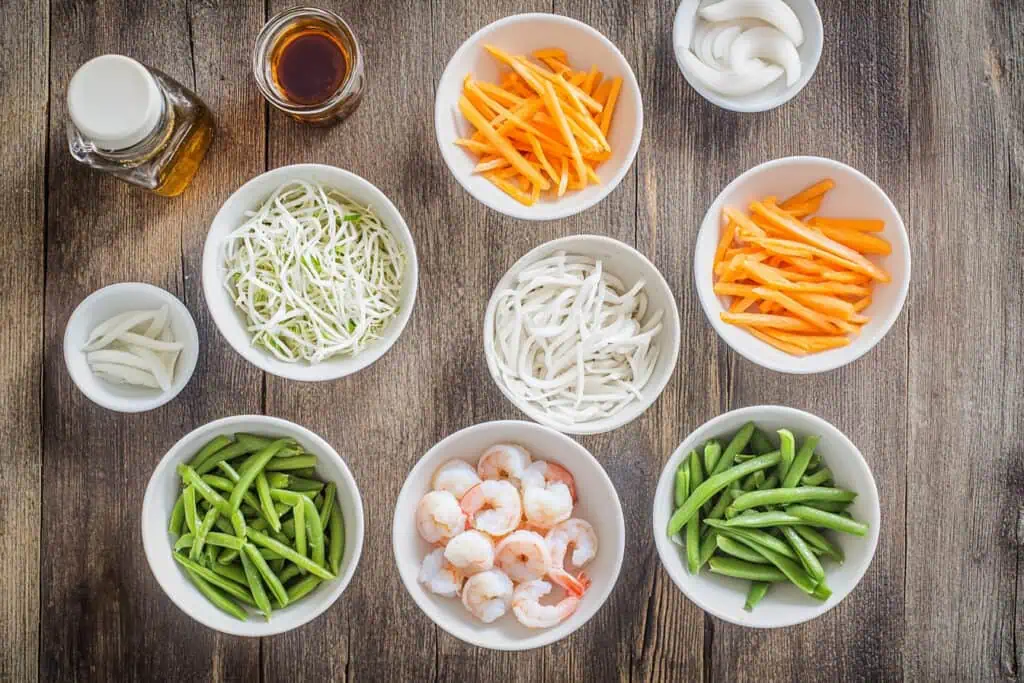
- 450g (4 cups) bean sprouts - thoroughly cleaned with dark spots and stringy tails removed
- 225g shrimp - peeled and deveined
- 1 large carrot - julienned into thin, diagonal strips
- 12 pieces green beans - sliced diagonally into 2-inch pieces
- 1 medium onion - thinly sliced
- 2 cloves garlic - minced
- 1 tablespoon canola oil
- 1 tablespoon fish sauce
- Salt to taste
- Freshly ground black pepper to taste
Equipment
- Wok or large skillet - The wide cooking surface and high sides allow for quick, high-heat cooking that's essential for keeping vegetables crisp. A traditional kawali works perfectly.
- Sharp knife - For precise cutting of vegetables, ensuring even cooking and beautiful presentation.
- Large cutting board - Provides ample space for prep work and keeping ingredients organized.
- Colander - Essential for properly draining bean sprouts, which helps prevent sogginess.
- Wooden spoon - Allows for gentle stirring without breaking delicate bean sprouts.
- Measuring spoons - For accurate seasoning, especially with potent ingredients like fish sauce.
- High heat cooking spatula - Heat-resistant for safe stir-frying at high temperatures.

How To Make
- Clean your bean sprouts thoroughly and remove any dark spots and stringy tails. Keep them in a colander to drain completely while you prepare other ingredients.
- While bean sprouts drain, peel and clean your shrimp. Slice your carrots into thin diagonal strips, cut your green beans into diagonal pieces, thinly slice your onion, and mince your garlic.
- Heat your wok or large pan over high heat. Add your cooking oil and wait until it's hot and shimmering.
- Add the minced garlic and sliced onions, then cook them until the garlic becomes fragrant and onions turn translucent, about 1-2 minutes.
- Add your shrimp to the pan and cook until they just start turning pink, about 1-2 minutes. Pour in the fish sauce and stir-fry for another minute to let the shrimp absorb the flavor.
- Add your sliced carrots and green beans to the pan. Stir-fry them for about 2-3 minutes or until they're tender but still crisp. Keep stirring to cook everything evenly.
- Now add your drained bean sprouts. This is important - cook them quickly over high heat, just until they're heated through but still crunchy, about 1-2 minutes. Add salt and black pepper to taste. Stir everything gently to keep the sprouts from breaking.
- Transfer your ginisang togue to a serving plate right away. Don't leave it in the hot pan or it will get soggy. Serve immediately while hot, best enjoyed with steaming rice.
Remember: The whole cooking process should take no more than 10 minutes. Keep your heat high and your stirring gentle for the best results.

Tips from Lola's Kitchen
- Prepare your mise en place - Having all ingredients ready before heating your wok ensures quick, seamless cooking that preserves the crispness of vegetables.
- Never wash bean sprouts until ready to cook - Washing too early causes them to absorb water and become soggy.
- Remove the stringy tails for better presentation and texture - this extra step makes a big difference!
- Keep heat high throughout cooking - The secret to restaurant-quality stir-fry is maintaining high heat to quickly sear ingredients.
- Don't overcrowd the pan - Cook in batches if needed to maintain temperature and ensure even cooking.
- Add vegetables in order of cooking time - Start with those that take longer to cook.
- Stop cooking while vegetables are still slightly crisp - They will continue cooking from residual heat.
- Use the freshest bean sprouts possible - Ideally purchased the same day you plan to cook.
- Drain bean sprouts thoroughly - Excess moisture leads to steaming rather than stir-frying.
- If using frozen shrimp, thaw completely and pat dry before cooking to prevent excess moisture.
Substitutions
- Protein options: Substitute shrimp with:
- Firm tofu (cubed and lightly fried first) for a vegetarian version
- Ground pork or chicken strips for a meatier flavor
- Chopped mushrooms for an earthy vegetarian alternative
- Thinly sliced beef for a more substantial meal
- Vegetable alternatives:
- Snow peas instead of green beans for a sweeter crunch
- Thinly sliced bell peppers add color and vitamin C
- Julienned celery provides aromatic depth
- Bok choy adds leafy texture and nutritional value
- Cabbage strips work well when bean sprouts aren't available
- Seasoning swaps:
- Oyster sauce instead of fish sauce for a richer umami flavor
- Light soy sauce for a different savory profile
- Coconut aminos for a soy-free, slightly sweeter option
- Liquid aminos for a gluten-free alternative
- Oil alternatives:
- Vegetable oil works perfectly fine
- Coconut oil adds a subtle tropical flavor
- Sesame oil (just a splash at the end) for aromatic finish
Troubleshooting
Soggy Bean Sprouts?
- Ensure vegetables are completely drained before cooking
- Use higher heat throughout the cooking process
- Cook bean sprouts for only 1-2 minutes maximum
- Serve immediately after cooking
- Don't cover the dish while cooking or after serving
Too Salty?
- Add a squeeze of fresh calamansi or lemon juice to balance the saltiness
- Balance with extra vegetables that haven't been seasoned
- Serve with plain rice to offset the salt
- Next time, add fish sauce gradually and taste as you go
Too Bland?
- Add fish sauce gradually, ½ teaspoon at a time, tasting between additions
- Increase black pepper for more depth without adding salt
- Consider adding thinly sliced chilies for heat and flavor
- A sprinkle of MSG (if you use it) enhances existing flavors
- Squeeze of calamansi adds brightness without more salt
Vegetables Too Tough?
- Make sure slices are uniformly thin, especially for carrots
- Add a tablespoon of water and cover for 30 seconds to steam slightly
- Consider blanching harder vegetables briefly before stir-frying
Shrimp Overcooked?
- Add shrimp later in the cooking process
- Remove them temporarily after initial cooking, then return at the end
- Use larger shrimp which take longer to cook through
Storage & Reheating
Storage:
- Refrigerate in an airtight container for up to 2 days maximum
- Place paper towels beneath and on top of leftovers to absorb excess moisture
- Not recommended for freezing as bean sprouts will become mushy
- Store sauce separately if possible to prevent vegetables from getting soggy
Reheating:
- Quick stir-fry over high heat is best - just 1-2 minutes to warm through
- Add a few fresh bean sprouts when reheating to refresh the dish
- Use a dry pan (no additional oil needed) to prevent sogginess
- Microwave only as a last resort, using 50% power in 30-second intervals
- Best consumed fresh – this dish is at its prime immediately after cooking
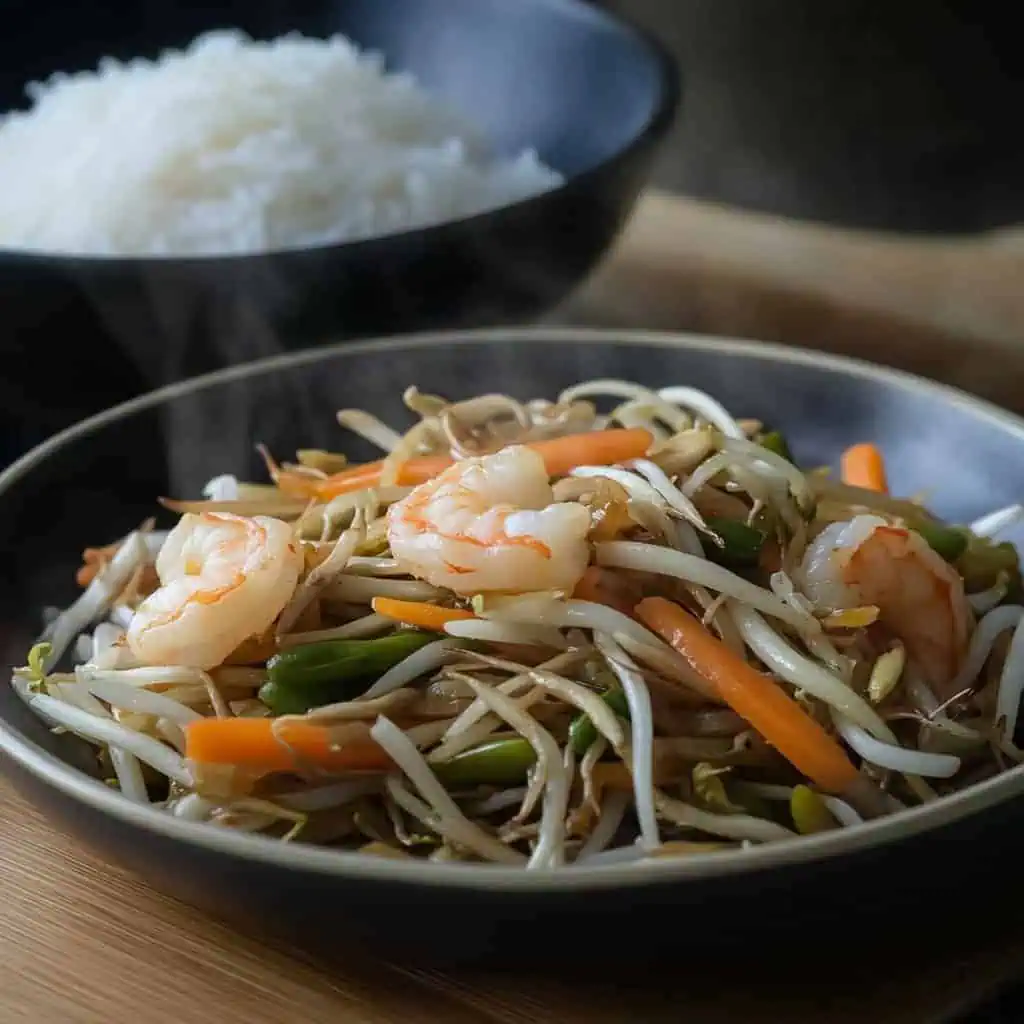
FAQ
Why are my bean sprouts turning brown?
This usually happens when they're old or overcooked. Use the freshest bean sprouts you can find and cook them quickly over high heat for only 1-2 minutes. Always purchase bean sprouts the day you plan to cook them if possible.
Can I prepare ingredients in advance?
Yes, most ingredients can be prepared ahead of time. Wash and cut all vegetables and store them separately in the refrigerator. However, bean sprouts should be cleaned just before cooking to maintain their crispness. Shrimp can be peeled and deveined up to 24 hours in advance.
How do I keep the vegetables crispy?
The secret is high heat, quick cooking, and proper draining. Make sure your wok or pan is very hot before adding vegetables, cook them in batches if necessary to maintain temperature, and don't overcook - bean sprouts need just 1-2 minutes of heat. Drain all vegetables thoroughly before cooking.
Is this dish keto-friendly?
Yes, bean sprouts are naturally low in carbohydrates, making this dish suitable for keto diets with minor modifications. Skip the carrots or reduce the amount significantly, as they contain more carbs than other vegetables in the recipe. The protein from shrimp makes it a satisfying keto meal.
Can I make this in advance for parties?
This dish is best served fresh, as bean sprouts quickly lose their crispness. If you need to prepare ahead for a party, I recommend preparing all ingredients and having them ready to cook, but doing the actual stir-frying just before serving. You can cook in larger batches for parties but maintain the high heat and quick cooking time.
Why is fish sauce important in this recipe?
Fish sauce (patis) provides the authentic umami flavor that defines many Filipino dishes. It adds depth and complexity that salt alone cannot provide. The dish will lack its characteristic flavor without it. If you must substitute, use light soy sauce with a pinch of salt.
How can I tell when bean sprouts are properly cooked?
Properly cooked bean sprouts should be heated through but still maintain their crunch. They should look slightly translucent but not wilted or mushy. When you bite into one, it should still have a satisfying snap. If they start to look limp or release too much water, they're overcooked.
Can children eat this dish?
Absolutely! This dish is mild and nutritious, making it perfect for children. You can adjust the seasoning to be milder by reducing the fish sauce slightly. Many Filipino children grow up loving ginisang togue for its mild flavor and fun, crunchy texture.
Related
Looking for other recipes like this? Try these:
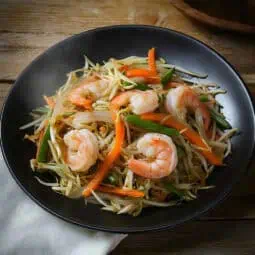
Ginisang Togue (Filipino Bean Sprouts Stir-Fry)
Equipment
- Wok or large skillet (kawali) for high-heat stir-frying
- Sharp knife (kutsilyo) for precise vegetable cutting
- Cutting board (Sangkalan) for preparation
- Colander (salaan) for draining bean sprouts
- Wooden spoon (sandok na kahoy) for stirring without damaging vegetables
- Measuring spoons (panukat) for accurate seasoning
Ingredients
Main Ingredients:
- 450 g 4 cups bean sprouts (togue), thoroughly cleaned
- 225 g shrimp hipon, peeled and deveined
- 1 large carrot karot, julienned
- 12 pieces green beans sitaw, sliced diagonally
- 1 medium onion sibuyas, thinly sliced
- 2 cloves garlic bawang, minced
Seasonings:
- 1 tablespoon canola oil mantika
- 1 tablespoon fish sauce patis
- Salt asin to taste
- Freshly ground black pepper paminta to taste
Instructions
- First, clean your bean sprouts and remove any dark spots and stringy tails. Keep them in a colander to drain completely. While they drain, peel and clean your shrimp. Then slice your carrots into thin diagonal strips, cut your green beans into diagonal pieces, thinly slice your onion, and mince your garlic.
- Heat your wok or large pan over high heat. Add your cooking oil and wait until it's hot and shimmering. Add the minced garlic and sliced onions, then cook them until the garlic becomes fragrant and onions turn clear, about 1-2 minutes.
- Add your shrimp to the pan and cook until they just start turning pink, about 1-2 minutes. Pour in the fish sauce and stir-fry for another minute to let the shrimp absorb the flavor.
- Add your sliced carrots and green beans to the pan. Stir-fry them for about 2-3 minutes or until they're tender but still crisp. Keep stirring to cook everything evenly.
- Now add your drained bean sprouts. This is important - cook them quickly over high heat, just until they're heated through but still crunchy, about 1-2 minutes. Add salt and black pepper to taste. Stir everything gently to keep the sprouts from breaking.
- Transfer your ginisang togue to a serving plate right away. Don't leave it in the hot pan or it will get soggy. Serve immediately while hot, best enjoyed with steaming rice.
- Remember: The whole cooking process should take no more than 10 minutes. Keep your heat high and your stirring gentle for the best results.
Tips from Lola's Kitchen
- Never wash bean sprouts until ready to cook
- Remove the stringy tails for better presentation
- Keep heat high throughout cooking
- Don't overcrowd the pan - cook in batches if needed
- Stop cooking while vegetables are still slightly crisp
Nutrition
The Story Behind Ginisang Togue
In the bustling streets of Manila's Chinatown, Binondo, lies the fascinating origin of Ginisang Togue, a dish that perfectly embodies the harmonious blend of Filipino and Chinese culinary traditions. Bean sprouts, known locally as togue, were introduced to Filipino cuisine through Chinese merchants who established themselves in the Philippines as early as the pre-colonial period. These humble sprouts quickly became a staple in Filipino kitchens, prized for their affordability, versatility, and nutritional value.
What began as a simple Chinese stir-fry transformed into something uniquely Filipino with the addition of patis (fish sauce) and local vegetables. Home cooks across the Philippines adapted the dish to suit local tastes and ingredients, creating countless regional variations. In coastal areas, fresh seafood like shrimp became a popular addition, while inland communities often opted for tofu or pork. This adaptability has helped Ginisang Togue maintain its place as a beloved dish in Filipino households for generations.
Today, Ginisang Togue represents the essence of Filipino home cooking – the ability to create something extraordinary from ordinary ingredients. It's a staple during Lenten season when many Filipino Catholics observe meatless Fridays, and it's a go-to recipe for busy mothers looking to prepare quick, nutritious meals on a budget. The dish has also gained popularity in contemporary Filipino cuisine as more people embrace healthier eating habits, appreciating its high protein content and low calorie profile.
What makes this dish particularly special is how it showcases the Filipino principle of "sangkap" or making the most of simple ingredients. The key lies in the technique of high-heat stir-frying, which preserves the sprouts' signature crunch while infusing them with the savory flavors of shrimp and fish sauce. This cooking method, passed down through generations of Filipino families, ensures that even the most basic ingredients are transformed into a dish worthy of any Filipino feast or "handaan."
Whether served in humble carinderias (local eateries) or prepared in modern Filipino kitchens, Ginisang Togue remains a testament to the ingenuity and resourcefulness of Filipino cooking. Its enduring popularity proves that sometimes the simplest dishes can bring the most satisfaction to the Filipino table.
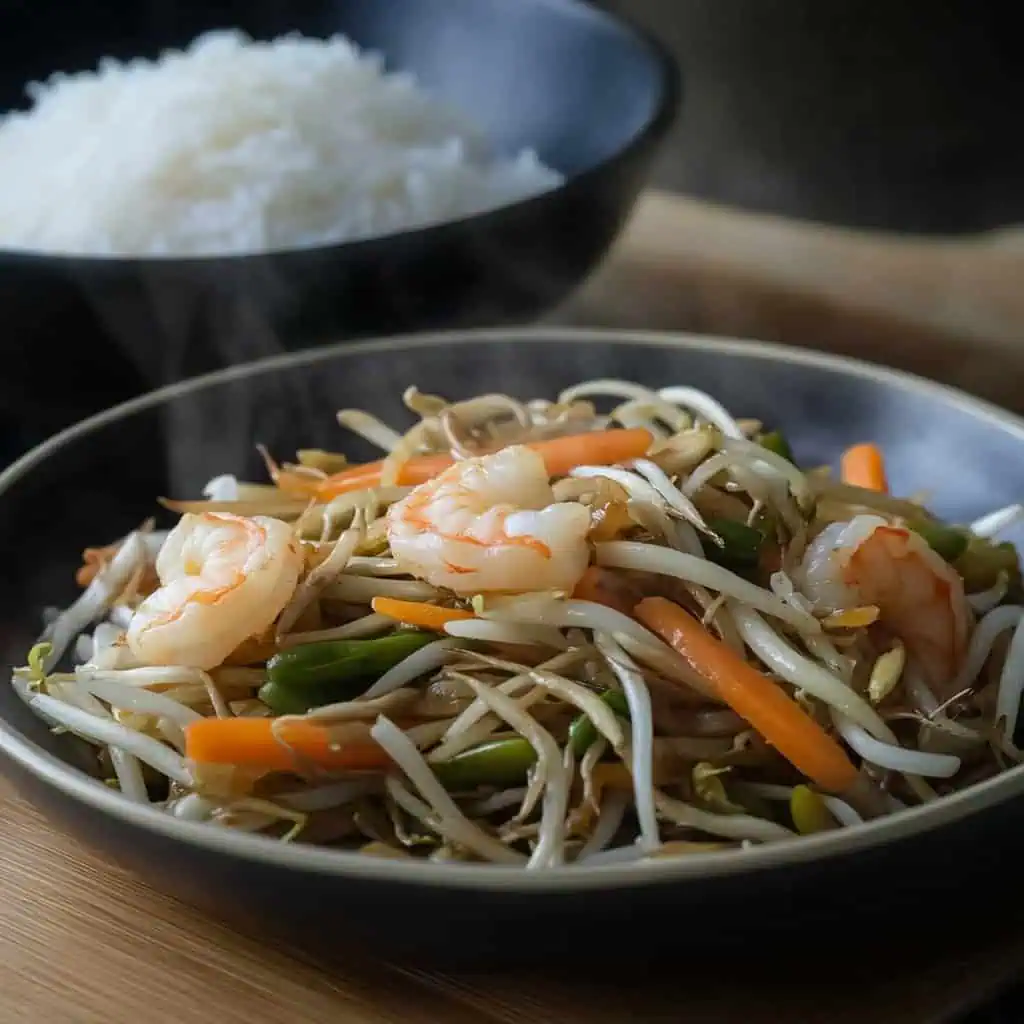

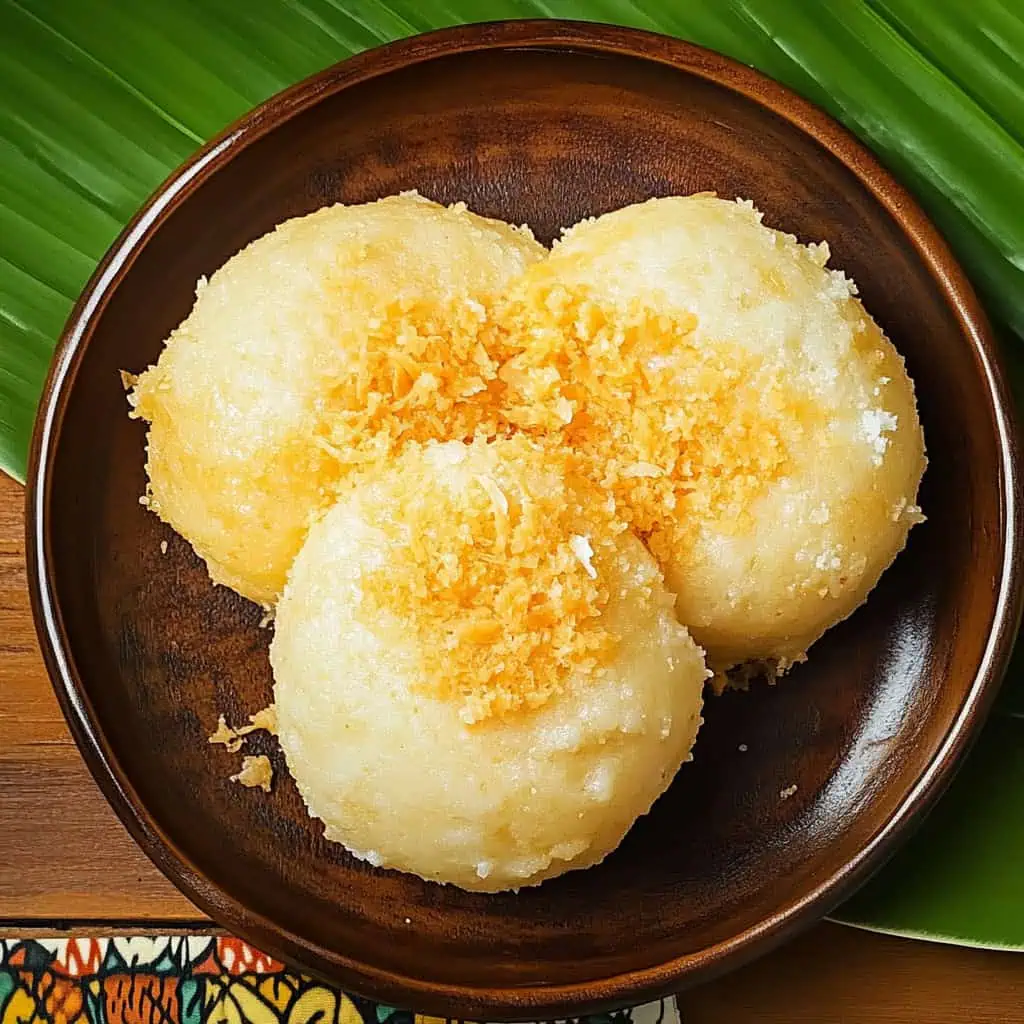
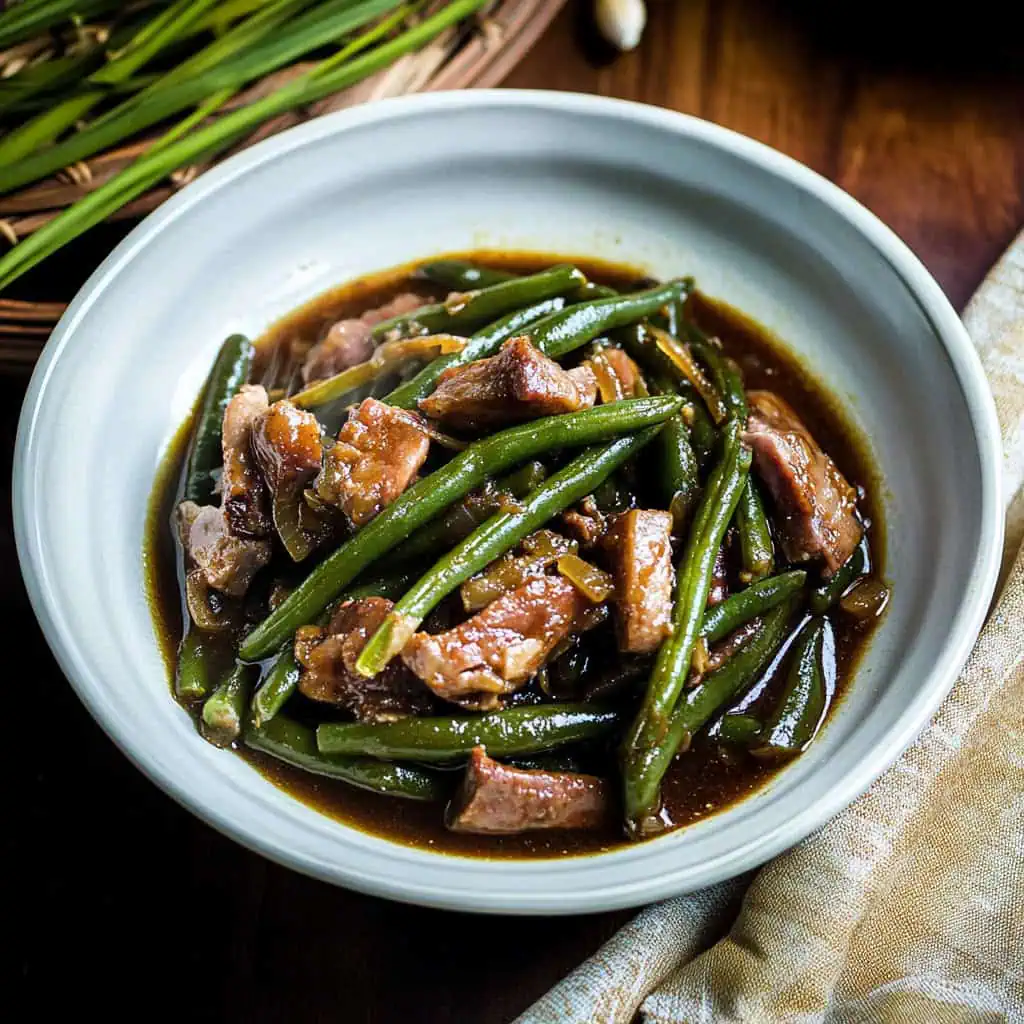

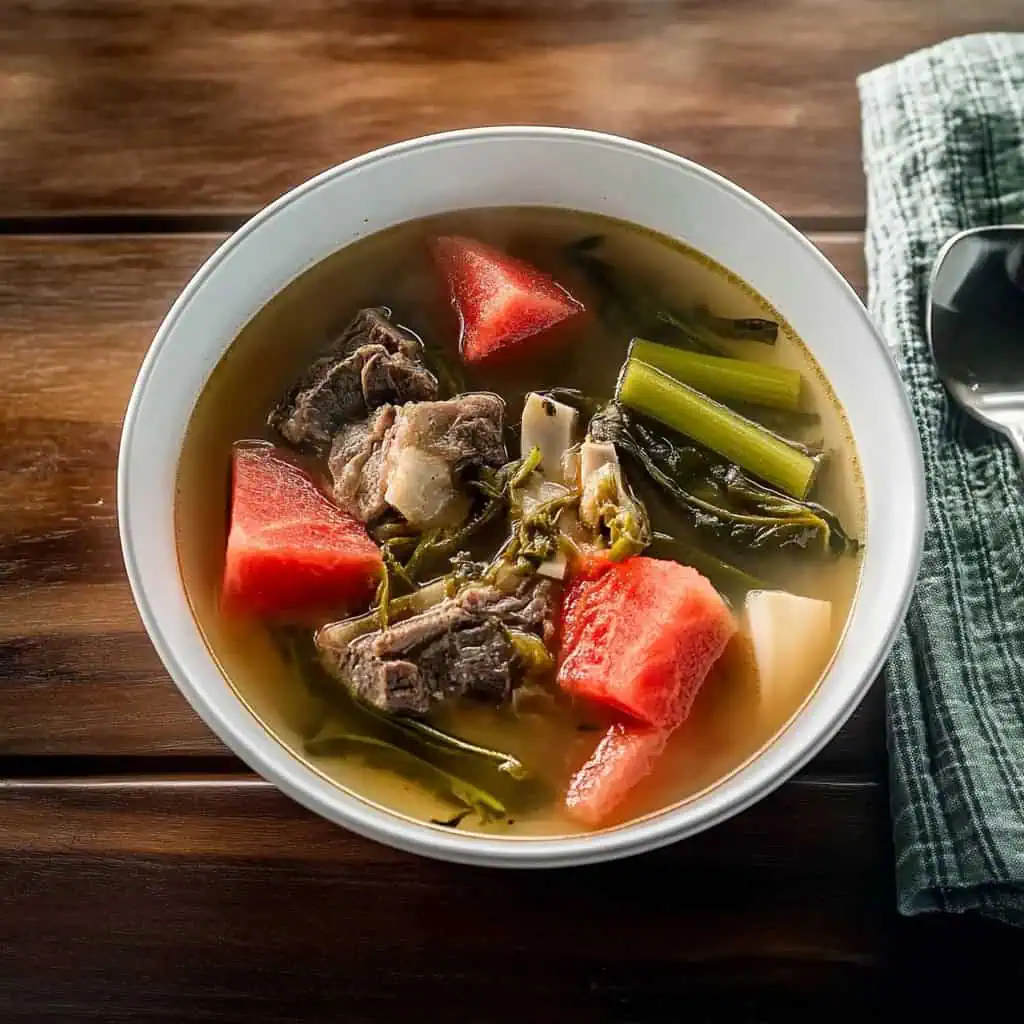
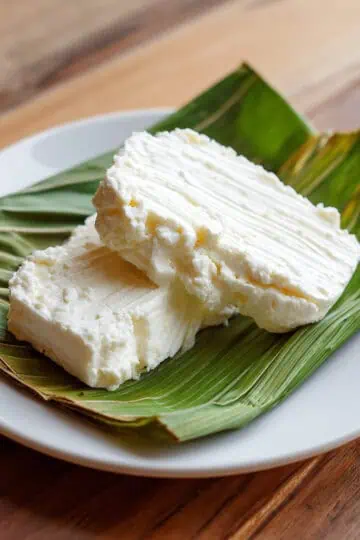
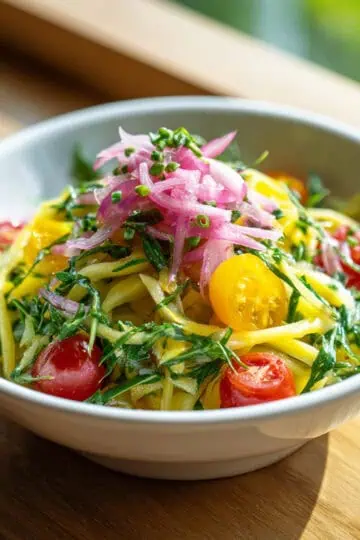
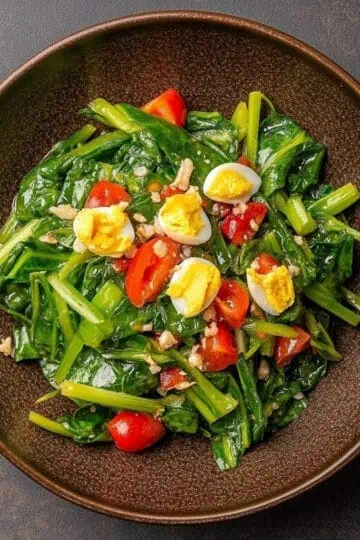

Comments
No Comments